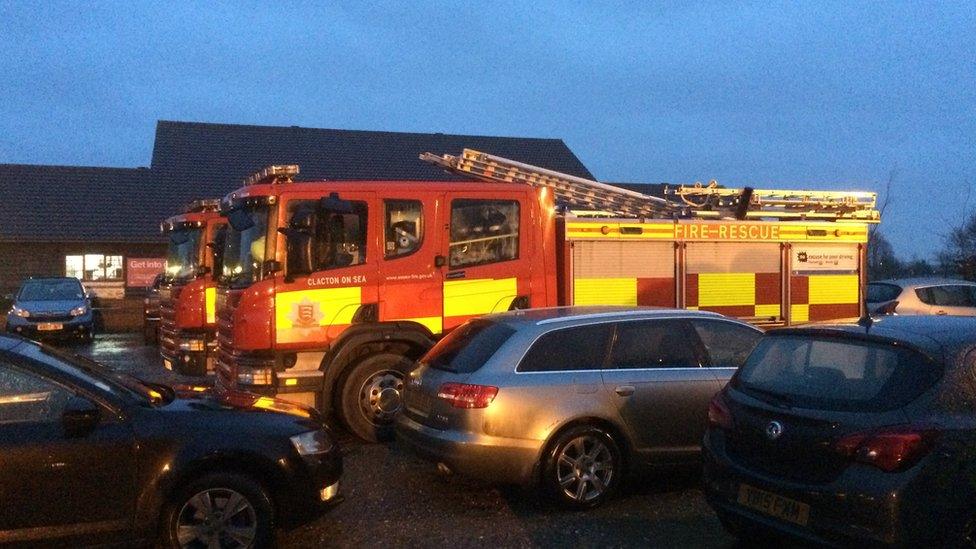Jaywick evacuation: 'We're not crying wolf'
- Published
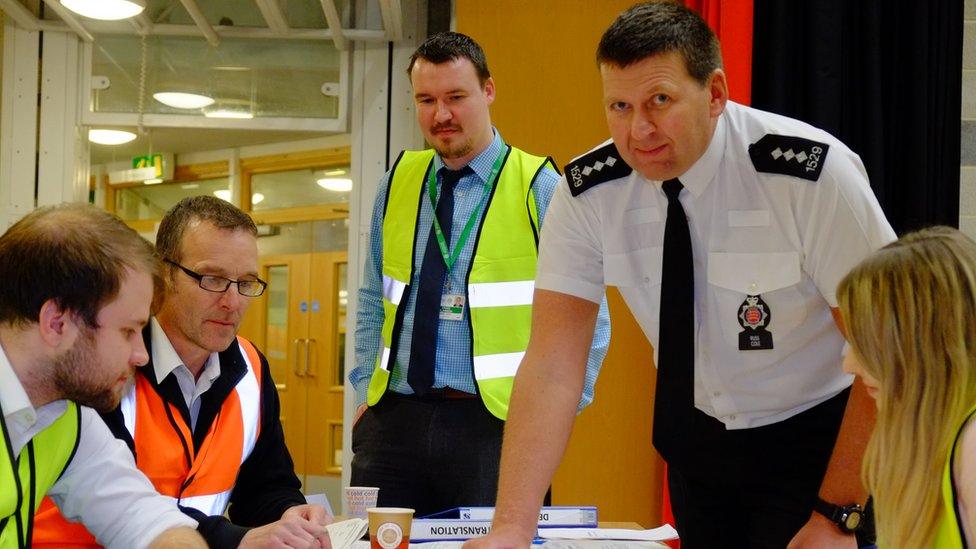
Tendring Ch Insp Russ Cole says the reaction to the evacuation has been "mixed"
Hundreds of police officers are knocking on the doors of residents of a small coastal village warning them they need to leave their homes in the morning. Some have already said they will refuse to go. Why?
"We're not crying wolf," says the district policing commander for Tendring, Ch Insp Russ Cole.
It may seem a strange thing for a police officer to feel the need to say. But Ch Insp Cole admits the response of residents to officers about the planned evacuation of the 2,500 or so homes in Jaywick, Essex, has already been "mixed".
"We have been looking at the forecast for the last week and the best information we have from all of the agencies involved are that we are facing a perfect storm of a spring tide of 4.2m (14ft), a storm surge coming down the North Sea, truly inclement weather of snow and rain and winds of between 40 and 50mph (64 and 80kph)," he says.
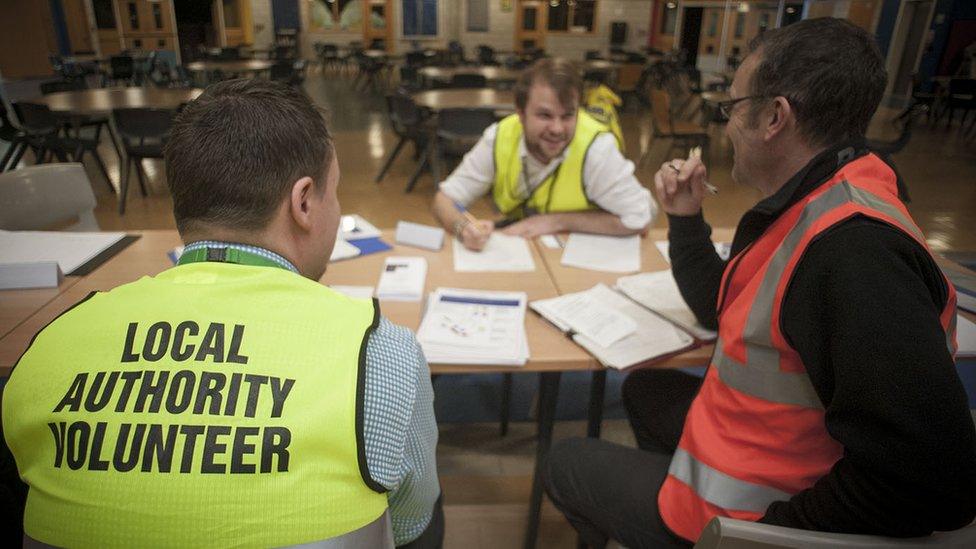
The rest centre has been set up at Tendring Education Centre in Clacton
"There is a really strong chance of water coming in over the top of the sea wall and round the back of Jaywick from the St Osyth end," adds Ch Insp Cole, who began work at 06:00 on Thursday.
He says he will not make it home until the early hours of Friday.
So why would anybody not heed the police advice and leave their homes for safety?
Matthew Woolston, who lives close to the seafront, says: "My friends say they are going to stay in their houses and see it out.
"They say they have been evacuated so many times they don't believe it [mass flooding] is going to happen.
"I am not going anywhere, I don't think there's a danger and the sea looks too calm."
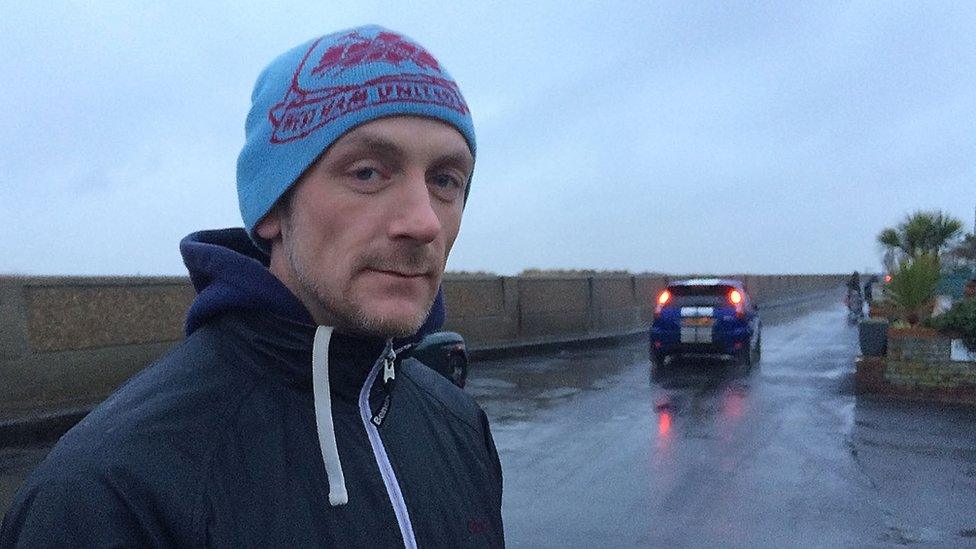
Matthew Woolston says he is not going to leave his home
Ch Insp Cole is aware of such scepticism.
Some of it, he explains, stems from the most recent mass evacuation of Jaywick in 2013 during the last storm surge.
"But in 2013, there was a difference - there was no wind. This time there will be."
Another difference in 2013 was that residents were told to leave their pets.
This time around, the people of Jaywick will be allowed to bring their animals with them.
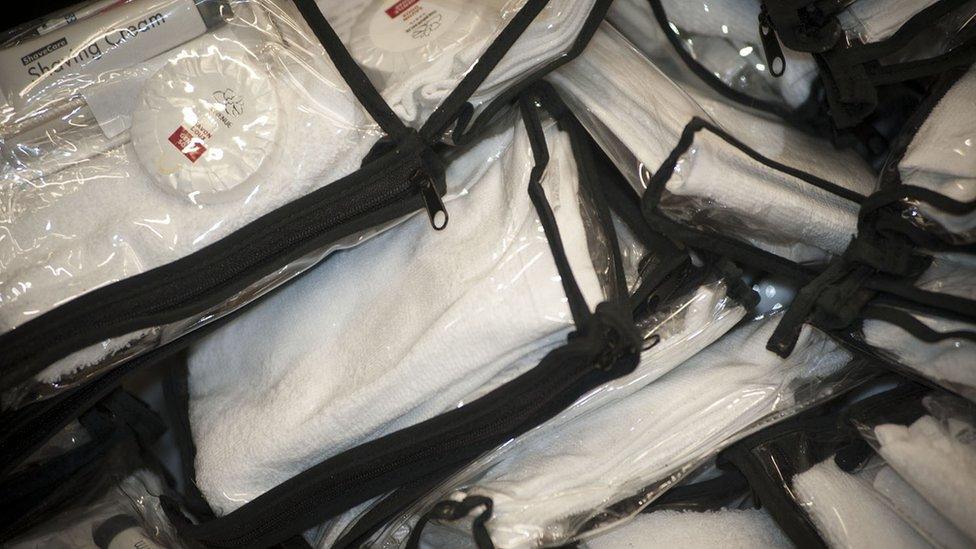
Emergency packs have been prepared for evacuees
"As long as people do not bring a 16ft crocodile," he says.
And he reminds people that the absence of casualties in the past few decades has been the result of planning and preparation.
Anybody who doubts the potential devastation rising waters can have need look no further back than 1953, he says.
On the night of 31 January 63 years ago, the North Sea swamped the village not from the sea front but from behind killing 35 people.
- Published12 January 2017
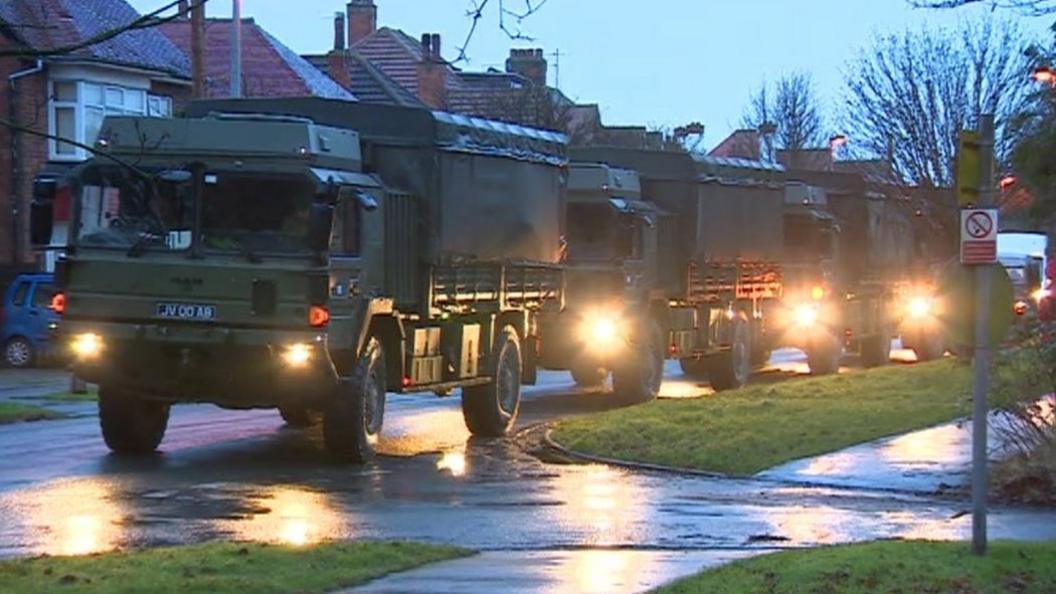
- Published31 January 2013
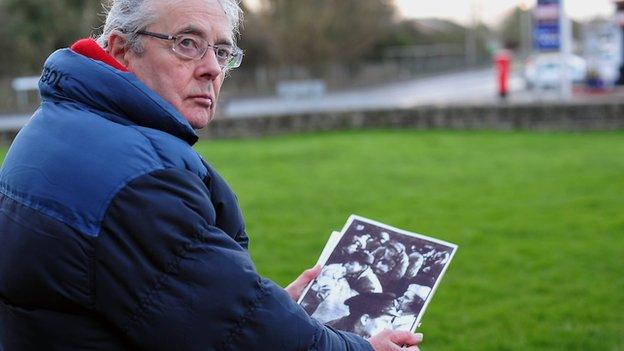
- Published12 January 2017
